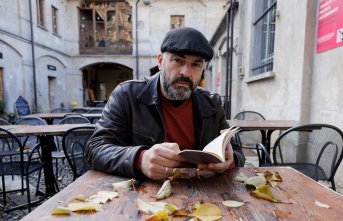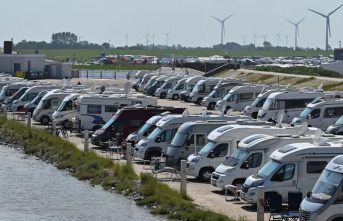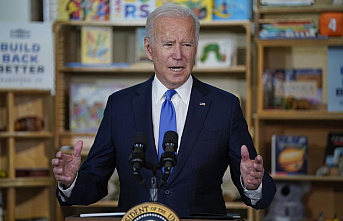LEIGH-ON-SEA (AP) -- Leading figures from all political parties gathered Saturday to pay respects to a long-serving British lawmaker, who was stabbed in an attack police believe was terrorist-related. Questions about the security of legislators as they carry out their duties have been reopened by his death.
Friday's murder of David Amess, a Conservative member of Parliament, at a regular meeting of local voters caused shock and anxiety across Britain's political spectrum. This happened just five years after Jo Cox, a Labour Party lawmaker, was killed by a far right extremist in her small-town constituent.
After joining other British Home Secretary Priti Paltel to pay respects to Amess at his church, she said, "He was killed doing something he loved, serving his constituents as an elected democracy member"
Patel stated that she had already met with the Speaker of House of Commons, the police departments, and the U.K security services to ensure that security measures are in place for MPs so they can continue their duties as elected democratic members.
In a sign of the political unity that emerged immediately after Cox's death, Johnson of Conservatives, Keir Starmer (leader of the Labour Party), and Lindsay Hoyle (non-partisan speaker of House of Commons) arrived at Amess's funeral church and laid flowers.
Amess was attacked Friday afternoon at his constituency meeting in Leigh-on-Sea. This town is 40 miles (62 km) east of London. Multiple stab wounds were inflicted on Amess. Paramedics attempted to save him but failed. For the attack, a British 25-year-old man was arrested by police.
According to the Metropolitan Police, the attack was terrorism. It said that its initial investigation had "revealed an underlying motivation linked with Islamist extremism." However, it did not give any further details. Officers searched two locations in London as part of the investigation.
Amess was helping residents of Southend West, his seaside constituency, when he died. The British parliamentary system allows lawmakers to have direct contact with local voters. They often host open meetings or "surgeries" to hear their concerns.
These meetings are often held in churches or community halls and are advertised publicly. Amess posted online the location where he would host his surgery on Friday.
Rev. Clifford Newman in the Belfairs Methodist Church, where Amess was murdered.
He said, "And if you go to Belfairs instead of some ivory tower somewhere else, people feel more relaxed, freer, and more open to him."
The topics discussed at the meetings can include national issues like the government's handling the coronavirus pandemic or more mundane matters like requests for speed bumps along busy roads or disputes over a neighbor’s fence.
Although members of Parliament may not have the power or ability to solve the problems presented to them by the government, they can make use of their influence to press officials at both the national and local level to get the job done.
"I feel like I have lost a close family member. Erica Keane (69), said that she felt that he was part of the Southend family, and was the leader of Southend. He was everywhere. He was on the football pitches, in the choirs, in the pubs. He was everywhere, and he was Southend.
Amess was a well-respected lawmaker. He won 10 of the 10 elections since 1983, when he was first elected to parliament. Although he did not serve as a minister in the government and was known for being a social conservative on abortion and capital punishment, Amess was still considered a fixer and a lawmaker who could create alliances across political lines.
Friday's murder has raised concerns about the dangers politicians face in their role representing voters. Unlike the high-security measures in Parliament, British politicians are not provided with police protection during meetings with constituents.
However, the hatred directed at them has clearly increased in recent times. Many blame the more polarized atmosphere on Facebook and the political divisions that were stoked by Britain’s recent exit from the European Union.
Tanmanjeet, a Labour lawmaker, stated that "As MPs we want to be approachable and accessible but lately there has been more violence."
Tobias Ellwood is a prominent Conservative lawmaker and gave first aid to the officer who was stabbed at Parliament's gates in 2017. He's one of those who has already spoken out about the need for reform. He suggested that face-to-face meetings should be suspended while Patel conducts a security review. Interactions can now be conducted online.
Harriet Harman, a veteran Labour lawmaker, said that she would write to the prime minster to request his support for a conference to examine the safety of parliamentarians.
Harman stated that "I don’t think anyone wants to go to a position where the police are screening individual constituents who come to see us, but there is a safer and more efficient way to do our business," Harman said to BBC radio.
A Speaker's Conference is a conference that brings together representatives from all political parties to make non-partisan recommendations. They only occur about once in ten years.
Harman stated that since Jo Cox's death, there have been changes in our home security and in Parliament security. But, Harman didn't address the question of how to do important work in our constituency. He said, "Since Jo Cox was tragically killed, we've made changes in our home security but not in Parliament security." "I believe we should do that now."












